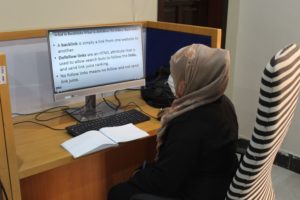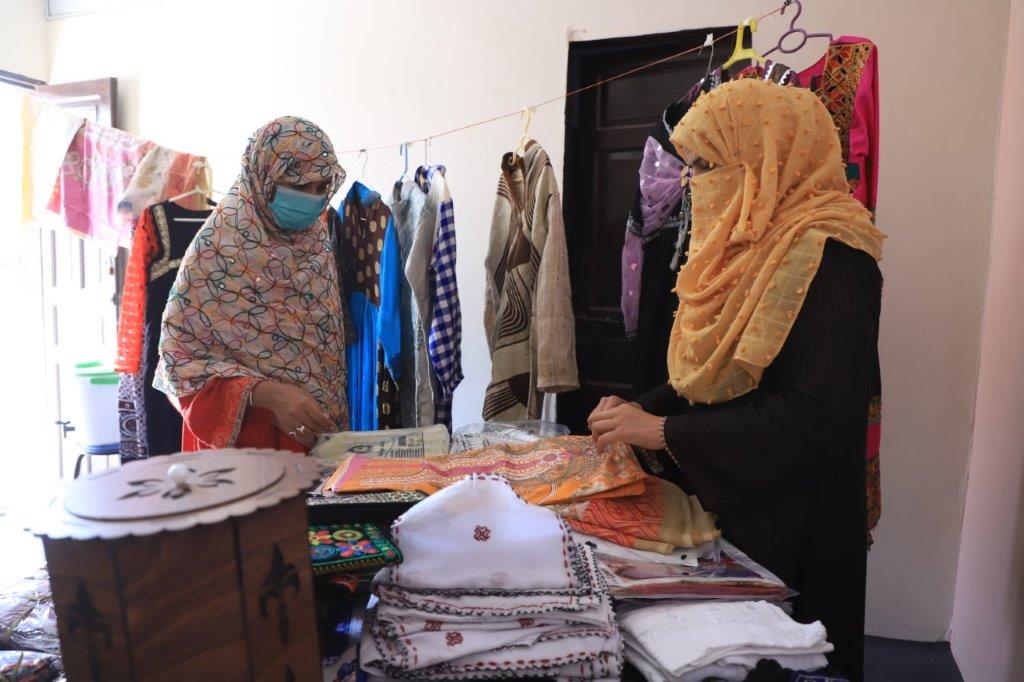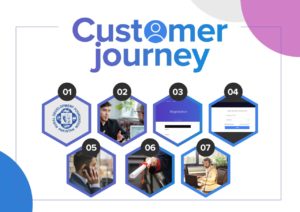E-jobs: A pilot from Pakistan
E-jobs are very relevant and yet underutilized sector in Pakistan. Providing a platform that gives access to online jobs and trainings while staying at home has great potential for education and employment, specifically to women and others who have a decreased mobility in the rural areas. This pilot focuses on youngsters from 15 to 29 years of age with no or little employment history. The pilot started in June 2020 and is implemented in Layyah and Jamshoro region.
Pakistan has a population of approximately 212.2 million people, of which 64% is in the age group between 15 and 29 years. In total, it is estimated that 8.8% of youth between 15 and 24 years old are unemployed. The majority of provincial governments in Pakistan have announced the concept of e-job programs as a promising tool for economic youth empowerment, as e-jobs have a high growth rate as compared to conventional jobs. However, EYW research showed there is a lack of modules that can systematically make use of this industry. The ongoing educational system is not effective - less than 6% of youth have technical skills, which is a major cause of unemployment.
What makes this pilot innovative?
The interactive nature of the e-jobs platform is what makes this pilot unique. The platform (https://www.seekhopakistan.co/) is offered for free and offers 5 courses: Social media marketing, Life skills, Freelancing, Affiliate marketing, and Search Engine Optimization. Following a blended learning model that combines both offline and online components, the Innovation Hubs function as classrooms where the youngsters complete the courses online. During the classes, there is an instructor available online on Zoom (from a different location) to answer their questions.

In addition, the students are supervised by mentors. The students can contact their mentors by e-mail or phone regarding any question they have via the mentor helpline. The mentors also check-up on the students’ progress. At the end of every week, there is a group call with all the students and mentors to reflect on learnings, new topics, and answer questions. After finishing the courses, students are actively supported with finding e-jobs by the mentors. The freelancing course specifically gives an overview on how to connect to jobs, what freelance platforms are available that offer e-jobs, and how to apply and win the jobs.
The courses are taught 90% in local languages and 10% in English, which matches the used languages in Pakistan. This makes the learning platform accessible for the rural youth, while including certain topics and words in English to promote linkages to the job market outside their local area.
Results
The pilot started only recently. Currently, 12 young people (of which 2 are women) are enrolled in courses. The next batch will include 17 young people.
The Innovation Hub, where the courses are given, is already a community place which makes it that young women and men are comfortable with following the courses here.

At the Innovation Hub in Layyah, Ansa Farooq took part in trainings including GALS, communication skills, confidence building and digital marketing. She learned many of these through the E-jobs program. Enthused by the training, Ansa volunteered to set up a clothing stall at an EYW exhibition, which inspired him to open her own boutique clothing shop. Read Ansa's story here.
Methodology
The idea of implementing an e-jobs training and job opportunities platform was inspired by an E-motive exchange to Egypt. Through this, it became clear how young people can have benefit from this untapped industry. A survey among youth in both regions was conducted to identify their attitude on and level of understanding is of e-learning. In total, there were questions on 7 different courses, out of which the current 5 where selected and developed. A consultant specialized in e-learning prepared a demo showing how the online platform could look, on which the Pakistan team gave feedback.
Lessons learned
 From the E-motive exchange to Egypt, many important challenges and lessons were identified that were addressed in this pilot.
From the E-motive exchange to Egypt, many important challenges and lessons were identified that were addressed in this pilot.
- In the future of work, e-jobs play a very promising role. However, the biggest challenge is that market can be very competitive for rural, non-English speaking youngsters. The focus now is creating linkages with employment opportunities in rural areas which do not require fluency in English.
- Having demand-oriented courses are key when it comes to E-jobs. A market analysis must be carried out in order to design customized trainings. Also, informing young people and setting realistic expectations about the market is important.
- The drive and motivation of young people are more important than their experience when applying for jobs. The provision of soft skill training alongside e-jobs training could benefit youth.
- It is important to keep in contact with alumni. In this way, they can provide support to new students and seek support from the school if needed.
There were several challenges and lessons learned from the pilot phase.
- During the course itself, there is no need for an instructor to be physically in the class itself. The students often do not have questions at that specific moment, but at the end of the class or after. Additionally, it was hard to find an instructor in the local area that was specialized on the course topics. Having the possibility of giving instruction online means that an expert can be hired from a different area who is available to answer questions outside of class.
- In rural areas, there is the belief that studying must be done at a campus, not online. Also, it is important that the youth have an opportunity to have access to internet and computer from which to follow the courses. Offering the blended learning model takes this hurdle away and allows youth to follow these courses at the Innovation Hub.
Sustainability and scaling
As the demand for e-learning is increasing rapidly, offering close supervision from mentors will lead to more successful results for youth and therefore ensure the necessity of this pilot as an e-learning model. Also, the linkage to the Innovation Hubs gives access to internet and offers a safe space, which plays an important role in sustainability. Despite the pilot being in its first stage, it could be easily scaled to different areas due to its base materials being online.
To read more about soft and life skills training of the EYW project Click Here
